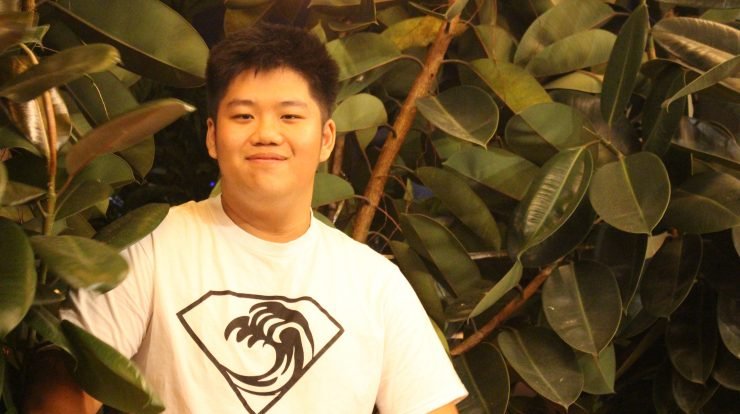Tell us about the origins of Sarawak Eco-Warriors in Kuching. What was the motivation behind the initiative and what are your objectives? Can you tell us who was the main architect of this movement and what your role is within the group?
Sarawak Eco-Warriors (SEW) originated from a Young Southeast Asian Leadership Initiative (YSEALI)’s regional workshop named Borneo Eco-Warriors, which was held in Kota Kinabalu, Sabah on the 10th-13th July 2017. This is where the key members of SEW met. We were all like-minded and wanted to make a change in our community. After the workshop, we headed back to our hometowns and decided to work together to come up with a few events through a small grant. In the initial stages of SEW, Mark was the Project Manager who later became President when we decided to open registration to the public on the 1st of January 2018.
What are some the movement’s milestones since its origins?
Our first big milestone was our first project (where we learned how to function as a team) ‘Green Stars Environmental Workshop’ with Sematan Secondary School. This included not only environmental education but also provided an opportunity for students to have hands on experience in a coastal clean-up. Through coordination with a local artist named Nia Latif, the students produced a 96sq ft art piece made from the marine debris collected from the clean-up. The art piece represented a hammerhead shark, an animal threatened by the increasing problem of plastic waste pollution.
What has been achieved so far? Have you made a difference to the environment on the issues you have tackled and have you raised the public consciousness regarding safeguarding the environment? Do you reach out to specific audiences? Students, Corporates, other communities etc.
SEW’s main focus in the community is to provide opportunities for people to volunteer and also take up leadership roles in conservation. The majority of our volunteers are students from Swinburne University of Technology. Some of them have since taken up leadership roles in events such as community service initiatives in high priority turtle conservation areas and jointly organised the meat-free month challenge with TARSIER Philippines.
What are some of the challenges you face while working to achieve your objectives? Has there been resistance from private businessmen, corporates or other institutions or bodies?
The main challenge we face is resource management. As SEW is an 100% volunteer-run organisation, our members are all either working or studying and may not be able to commit their time and energy to support every project/event. Even so, there is an increase in local people who are concerned in environmental matters and have volunteered in different ways towards the achievements of our objectives.

You have a partnership with the Wildlife Conservation Society, can you explain the nature of this partnership and how it supports your group activities? Do you work with any other NGOs and community organisations in Sarawak?
Our main partnerships are with the Wildlife Conservation Society and Kuching Beach Cleaners. Through this three-way partnership, we have helped each other to grow and learn how to better manage coastal clean-ups in nearby public beaches. We are currently putting together a plan to study marine debris pollution in 2019.
How do you fund your activities? Do you have patrons or seek funding from the local government/ corporates to carry out your environment awareness programmes such as environmental education programmes
SEW has received financial support from our partners and grants from the United States Embassy. Aside from that, we also sell sustainable merchandise such as bamboo toothbrushes and metal straws. We also do receive donations in cash and kind from like-minded citizens and corporations
Can you share some lessons you have learnt along the way or achievements? How do you measure your success so far?
There are multiple ways to measure success, some would consider a ‘masculine approach’ where the goal is achievement oriented and some consider a ‘feminine approach’ where the goal is in the way things are done. SEW’s emphasis would be more feminine goal oriented as we believe that in most cases it is not about the number of participants or the number of activities conducted, but rather on the impact towards our community. We believe that people should not be pressed to contribute to conservation but instead understand what it means to be an eco-warrior.
Is there anything else that you would you like to tell our readers? Any specific key messages?
Always be open to learning new things in whatever you do. Four years ago, I joined Kuching Beach Cleaners in their regular clean-ups and from that point onwards I grew more concerned for our environment. At the time I would have never expected to have the opportunity to have a career in conservation, to be able to lead an environmental group with some of my closest friends and being connected to environmental activists and advocates from all across South East Asia.

